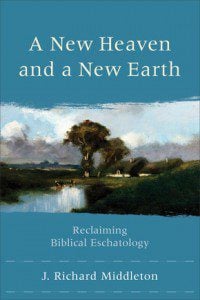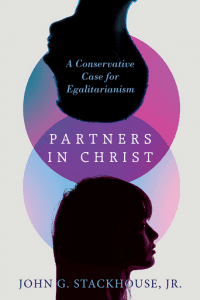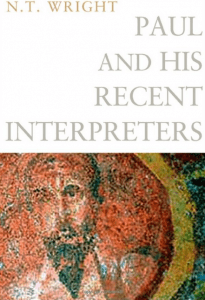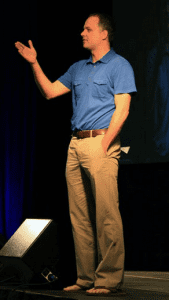 One of the overarching themes of the Old Testament is God’s redemption of his people (and boy, do they (we) need it). Chapter
One of the overarching themes of the Old Testament is God’s redemption of his people (and boy, do they (we) need it). Chapter six four of Richard Middleton’s book A New Heaven and a New Earth sketches this Old Testament view of salvation. But, and this is an important but, salvation in the Old Testament is, without exception, salvation aimed at earthly human flourishing in community. This is in line with the creation mandate for humans to be God’s image bearers on earth. To rule, subdue, and create. Humans were created to be fruitful and multiply, to fill the earth and subdue it, to till and keep God’s sacred space. Male and female we were created for this. But human rebellion and sin prevents the fulfillment of this calling.
This chapter lays out some key points in Middleton’s argument to reclaim biblical eschatology and grasp the impact of the anticipation of a new heaven and a new earth. It is hard to over estimate the importance of the Old Testament view of God’s salvation to the New Testament view of salvation. Certainly our tendency is to underestimate its importance and chase rabbit trails instead.
[W]e are prone to miss the amazing scope of God’s redemption, and especially its full-bodied, this-worldly character, if we do not read the New Testament with the worldview of the Old Testament as our basis and guide. And I found that the more I understood the Old Testament (which was Scripture for Jesus and the early church), the more depth and complexity I saw in the New Testament, and the more meaningful it became. (p. 78)
Although it is possible to learn much from the New Testament alone, much that is important is missing without the story behind the story of Jesus. The biblical view of salvation is one of those topics that can be seriously distorted. Salvation is not limited to forgiveness of sins or to an assurance of heaven when we die.
[Salvation as] being made right with God through forgiveness of sins … is not wrong, but it leaves out a great deal. … Salvation is much wider than that; it cannot be limited to forgiveness of sins or escaping judgement. In the Bible, salvation is a comprehensive reality, both future and present, and affects every aspect of existence.
The most fundamental meaning of salvation in Scripture is twofold: it is God’s deliverance of those in a situation of need from that which impedes their well-being, resulting in restoration to wholeness. Wholeness or well-being is God’s original intent for creation, and that which impedes wholeness – sin, evil, and death in all their forms – is fundamentally anti-creational. Both the deliverance of the needy and their full restoration to well-being (in relationship with God, others, and the world) are crucial to salvation, and the term may be used for either or both together. (p. 79)
 Middleton defends this view by looking at salvation in the Old Testament. The story of the exodus from Egypt is the paradigmatic example of God’s deliverance. God rescued Israel from oppression by the Egyptians and shaped, formed, and established them as his people. The following elements played key roles in the exodus and throughout Scripture.
Middleton defends this view by looking at salvation in the Old Testament. The story of the exodus from Egypt is the paradigmatic example of God’s deliverance. God rescued Israel from oppression by the Egyptians and shaped, formed, and established them as his people. The following elements played key roles in the exodus and throughout Scripture.
- The people needed deliverance. Their slave existence in Egypt prevented them from flourishing. “In every case the need for salvation results from some impediment that blocks God’s purposes for blessing and well-being.” (p. 80) Sin and human evil in one fashion or another provides the impediment.
- The Israelites groaned and cried out for help. Lament, crying out for God for help, is a common form of prayer in the Psalms and through out the Old Testament.
- God responds to this cry, both in Exodus and throughout the Old Testament in concrete historical ways. “We are told that Israel’s cry, “rose up to God” (Exod. 2:23), and God tells Moses, “I have come down to deliver them from the Egyptians (3:8).” (p. 81)
The basic principle at work here is summarized in an Old Testament prophetic text addressing a time of national distress; according to Joel 2:32, “Everyone who calls on the name of the Lord will be saved.” This prophetic affirmation is then applied to the salvation found in Jesus, both in Peter’s sermon on the day of Pentecost (Acts 2:21) and by Paul (Rom. 10:13), Thus in both Testaments, God responds with salvation to those who cry out for help in their time of need. (p. 82)
- God as the divine king fights for those in need, overthrowing the forces of evil. Middleton looks at the Song of the Sea in Ex. 15 as a example of God’s divine power. This song ends with the line “The Lord (i.e. YHWH) will reign forever and ever.“
The “coming” of YHWH as king of creation to judge evil is an important motif also in enthronement psalms and results in celebration among the nations and the nonhuman creation (see Pss. 96,98). YHWH’s coming as judge and savior also becomes a central theme of the Old Testament prophetic tradition. …
In the New Testament, Jesus, the incarnate Word, has entered history to do battle with powers of evil, especially on the cross and in his resurrection. (p. 83)
- God uses agents to assist in bring salvation. In the exodus account we see Moses most notably, but also Aaron and Miriam. Various judges, kings, priests, and prophets are used in other parts of the Old Testament.
- God establishes a place where his people can prosper and flourish. The exodus alone was not enough, the book of Joshua and the promised land is a key aspect of God’s salvation. The land remains important throughout the Old Testament. “Ultimately this leads to the New Testament’s vision of a new heaven and a new earth as the eternal home of the redeemed (2 Pet. 3:13; Rev. 21:1).” (p. 87)
- A life of obedience is the necessary response.
In the Old Testament as well as the New Testament, grace comes before law; the gift of deliverance precedes the obligation or duty of obedience. Indeed, obedience is an expression of gratitude for the gracious deliverance YHWH worked on behalf of his people.
…
But obedience to the Torah is not simply the appropriate response to God’s prior deliverance; in a fundamental sense, obedience completes the salvation begun in the exodus. Deliverance from bondage must now be matched by conformity to the creator’s will, which will require substantial changes in the way of life for God’s people. Salvation thus cannot be limited to deliverance from external circumstances; it must include what we might call “sanctification.” (p. 87-88)
This theme too runs through the New Testament. Paul tells the church in Philippi to “work out your own salvation with fear and trembling; for it is God who is at work in you, enabling you both to will and to work for his good pleasure.” (2:12-13)
- God dwells with those he delivered. The tabernacle, the construction of which is told with excruciating (boring) detail, is an indication of God’s residence with his people, and the temple becomes another.
Whereas much postbiblical Christian interpretation of God’s dwelling with his people tends to decontextualize the “relationship” (as if the community merely sits around a campfire, holding hands and singing “Kumbayah”), The Old Testament portrays God’s presence with the redeemed squarely in the context of their concrete earthly life, first on the wilderness journey, then in the land. (p. 89)
This image is behind the redeemed creation and new Jerusalem of Revelation 21-22.
And I heard a loud voice from the throne saying, “See, the home of God is among mortals. He will dwell with them; they will be his peoples, and God himself will be with them.” (21:3)
- Salvation is grounded in God’s relationship with his people. The exodus harks back to Abraham, Isaac and Jacob and the promises God made to Abraham. But it isn’t only Israel where a prior relationship exists. “[A]ll God’s actions on behalf of human flourishing are rooted ultimately in the relationship of humans with their creator.” (p. 91) We are all created in the image of God and designed to flourish in his presence. This is grounded in the primeval history of Genesis.
This Old Testament grounded view of holistic salvation should shape our view of God’s salvation of us yet today and his purpose for the future.
What does the exodus have to teach us about our salvation?
Are their any other points to raise, or aspects of Middleton’s outline that need further discussion and clarification?
If you wish to contact me directly you may do so at rjs4mail [at] att.net.
If interested you can subscribe to a full text feed of my posts at Musings on Science and Theology.
















